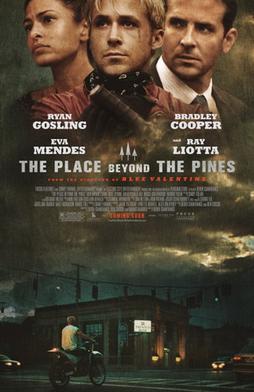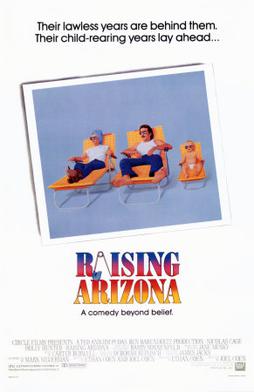
Joe: "World War Z." This one is an very nontraditional zombie movie. The things that make it different are the following: 1) suspense instead of just action 2) tastefulness instead of tastiness 3) scope.
Dan: Well, I'm no expert on the zombie genre in general, but I'd say that some other zombie films probably feature a mixture of suspense and action as well. But you're certainly right in pointing out that the way this film combines those two things works very well. I'd almost say they basically just alternate, and it works splendidly.
Joe: Yeah, well put. What stands out most to me about the suspense is that it is done so well. They kill off a couple characters early on--characters who you think might become important side characters. This means that later on, you think any of the side characters could suddenly get killed off, and so you're nervous. They add to that the fact that the zombies are mainly attracted to sound, and that gets you wincing and silently screaming every time someone kicks a soda can.
Dan: Indeed. The sound-attraction thing is a plot point that the script plants very early on, and it pays off majorly in the third act, where, as you said, we in the audience are wincing a lot as the characters keep making these small but potentially deadly noises. It is interesting too that we go from a lot of action in the middle sections to a very tight, small-scale, suspense-driven sequence at the end. That whole part in Scotland with the [plot details] was what really won me over to this film. There were some very epic, even iconic moments, I thought.
Joe: Absolutely. A lot of movies try to make their end "epic" by just making a really, really big battle at the end. "World War Z" does it just by brilliant suspense, high stakes, and like you said, at least one very iconic shot. Another thing that won me over for this movie is Brad Pitt's character, Gerry. He's not a "stand out" character as far as quirks are concerned, but I found myself thinking throughout the movie, "What a guy." You really, really root for him.
Dan: Agreed. And I think that is the value of an actor like Pitt who is also a "star" in the classical sense--even with a very basic, everyman type character, his talent and charisma pull you in and make you care about the guy. Also, to jump into some comparisons, I think the thing you just mentioned about epic not necessarily meaning big was a problem with "Man of Steel," and one spot at least where "World War Z" had it beat. "Man of Steel" goes very big and very cacophonous at the end, full of smashing and explosions and bright lights and jittery camera work.
Joe: The end battle in "Man of Steel," which indeed is more of the last third of the movie, is big, and like you say, "World War Z" wins out there. I find I get board very quickly with big action sequences with lots of explosions and flying stuff, and more and more movies are obsessed with those these days. I didn't notice the jitter too much in "Man of Steel," but you do have an eye for that, so they probably did use it, (and it is in general an overused style). Before we move away from "World War Z," my last comment on that one is that it side-steps the blood-bath style of zombie flick. Zombie movies have so much potential, but they also usually revel in this sort of Roman Circus love of blood, guts, and outrageous violence for its own sake. "World War Z" deliberately avoids this time and time again. That's tasteful.
Dan: Agreed. And it should be noted that it is PG-13, and more scary than gory for the most part. I'll add that the jittery camera is present in "World War Z" as well, especially in the first third or so, which was perhaps part of why it took a little while for me to get into the film. But once it had its hooks in me, I was very engaged. Anyways, on to "Man of Steel," which I think you liked considerably better than I did. So why don't you start us off!

Joe: Right-oh. "Man of Steel" got my attention with its first teaser trailer, featuring music lifted from Howard Shore's Fellowship of the Ring soundtrack, Russel Crowe narrating, and beautiful, dream-like imagery. I started to wonder, "is it possible that this movie could be as good as this trailer?" I'm still not sure. That trailer was hard to beat. But the movie overall was beautiful to me. First of all, I hope it at very least gets an Oscar nomination (if not award) for Best Cinematography. It was shot in a fantastic way. And I mean that in both senses of the word: it was really great shooting, and it was unearthly shooting. Unearthly both in that it was visually striking sci fi and that it had this imaginative, lyrical quality to it. So that shooting combined with the feel of the score and some of the ideas the film played with to make it a beautiful movie, that in its best moments was haunting. It's less great moments... well I'll let you take those.
Dan: Lyrical is a great word to describe what "Man of Steel" does well, to a large extent living up to the promise of that excellent teaser trailer, at least visually. Where it doesn't quite do the trick, in my opinion, is in the story department. The teaser made me imagine a detailed and emotional origin story somewhere along the lines of Christopher Nolan's "Batman Begins" or Sam Raimi's original "Spider-man" (both of which "Man of Steel" admittedly beats by a mile visually). But there wasn't a whole lot of that. Maybe it is because he is inherently less complicated of a character, but I never got very emotionally involved with Clark Kent in this film. He has some identity/destiny issues, yes, but in the super-hero/adopted alien world, who doesn't?
Joe: Certainly the weakness of the movie is the lack of specific emotional attachment. I felt emotionally involved at specific moments and in a general, thematic sort of way, but not very much with specific characters throughout the course of the movie. This is actually the first Superman film I have seen, but it is my impression that other ones might try to get down to a more personal level with Clark. I assume Smallville tried that. In a way, maybe the Superman story does not lend itself super well to intense, personal, character emotion stuff, so maybe "Man of Steel" finds other strengths to build on.
Dan: I think you've probably hit on something there. And "Man of Steel" definitely has its very impressive strengths, don't get me wrong. The performances are all solid, with no weak spots, which actually strikes me as a bit of an amazing feat for this type of movie, which usually has a least one weaker performance holding it back. I will specifically call out Kevin Costner and Diane Lane, who do tremendous work with their relatively small amount of screen time as Kal-El's adopted earth-parents. And as we keep coming back to, the visuals are just continually gorgeous. I compared it to "Tron: Legacy" on the car ride back, but that's not quite right. The images are deeper, more vibrant, whereas "Tron" was all about shiny surfaces, either glowing or reflecting light. "Man of Steel"'s images offer more weight and significance, especially that flapping red cape, which I think handily encapsulates both the sense of royalty and old-fashioned, uncomplicated goodness. Perhaps some of the troubles are in trying to make Clark Kent too moody and troubled then? Was that wrong route to take? But the melancholy/elegiac mood is part of what works so well . . .
Joe: Yeah, I didn't have a problem with the moodier side of Clark Kent, since he didn't really mope a whole lot. A last couple thoughts on other characters before we close up: General Zod and Lois Lane. I love Michael Shannon in "Take Shelter," but he has a little less latitude in this movie. Zod isn't quite the maniacal 2D villain that many Action or Superhero movies sport, but the writing for him doesn't allow for a huge level of depth. He has too many monologues. That said, there is one moment near the end where you suddenly see his soul, and I love that part. Also near the start, Michael Shannon pulls off a moment of genuine fear, which you don't see often in the bad guy. Amy Adams plays Lois Lane, and does a very competent job of it, though again, the character doesn't go deep. She and Superman had some moments that I like, but there was one that just didn't work for me. She has a line about relationships just going downhill after the first kiss, and he has a quip back about being an alien. It sounded like it came out a normal superhero movie. This movie has a lyrical tone, so that kind of line has no place in it. Their relationship also didn't have time to develop, so I thought they should have just played up more fairy-tale style in it. It would have fit the tone and it was unrealistic anyway, so... Anyway, I thought it had great imagery, interesting themes about genetic manipulation and destiny, and a wonderful feel. The last flashback was brilliant. I'll let you close us out.
Dan: Agreed on all those points. (I guess our differences must come down to how much we're weighing story/characters vs imagery and "intangibles" for this particular movie?) I think we've pretty much covered everything. So I hope everyone had a fun time reading this; maybe we'll try another double-feature dialogue review sometime! And thanks, Joe!





